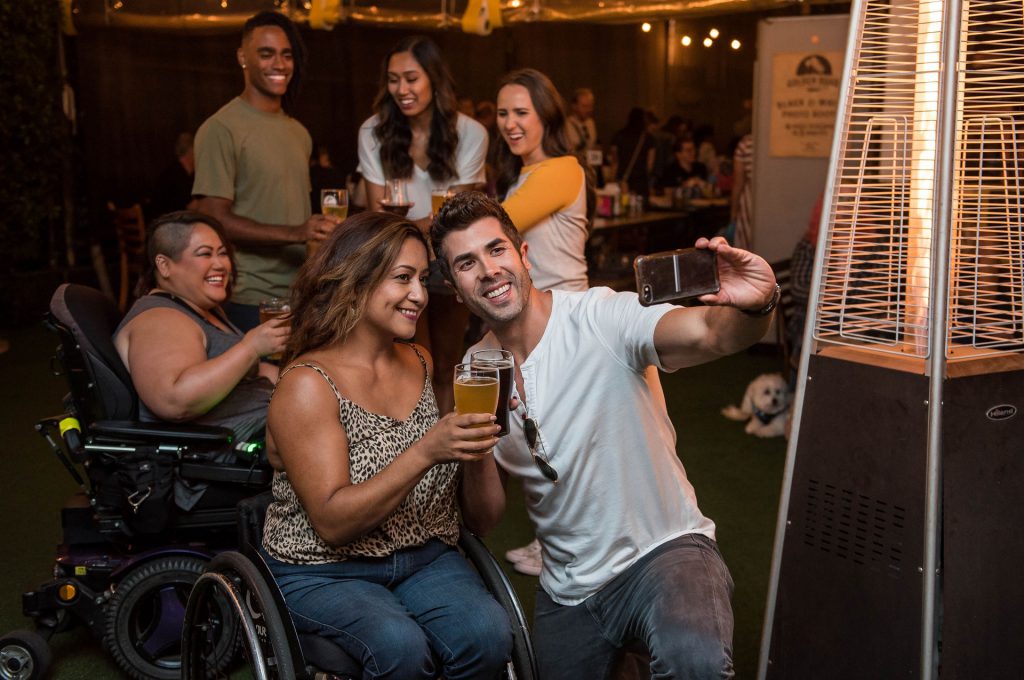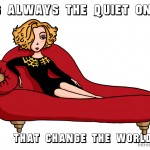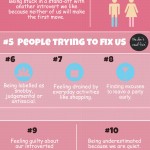
According to the Disability Funders Network, there are over 20 million American families where at least one family member has a disability. In fact, one in four Americans has a disability, says the Center for Disease Control.
For these individuals and their families, the impact of living with a disability can be extensive and far-reaching, affecting their financial, emotional, physical, and even social well-being. From the social attitudes towards someone with a disability to the increased prevalence of social anxiety, the social ramifications of being an introvert with a disability can heavily influence your social confidence and even your ability to connect with your loved ones.
Social Exclusion In And Out Of The Workplace
Although there has been remarkable progress in legislations aimed at protecting Americans with disabilities in and out of the workplace, discrimination and social exclusion continues to be rampant. In the workplace, just 41 percent of disabled Americans are employed.
Beyond it, Americans of all ages encounter difficulties if they are living with a disability. In schools, children with disabilities are two to three times more likely to be bullied, and a staggering amount of educational institutions do not have adequate programs to support the differentiated learning needs of differently-abled students.
With these shortcomings, those living with a disability find it difficult to maintain friendships or be accepted in social situations. Discrimination is still very much present in work and social situations, which can leave employees/students and their families feeling alone. For this to change, the disability narrative needs to change.
In addition to the wider dissemination of positive information on living with a disability, more needs to be done to connect individuals and families living with disabilities across America. There are some fantastic disability advocates and organizations that provide information on accessible housing, schools, medical therapies, and social sharing groups. Whether it is a parent seeking information on popular cerebral palsy therapy options or a disabled teen looking for peer support, these organizations can combat the feeling of social isolation and provide acceptance.
Loneliness And Depression When Living With A Disability
Another consequence of the social situations faced by those with disabilities is the increased likelihood of loneliness, depression, and overall poor mental health. Approximately 26 percent of people admit that they avoid conversations with someone with a disability, while 46 percent of them say they have nothing in common with someone living with a disability.
As a result, the increased isolation felt by those with special needs can be difficult to cope with mentally and emotionally. This is only further compounded by the limitations that can come with decreased physical mobility, access to transport, or other barriers.
Both introverts and people with disabilities are more likely to experience depression, and may be less likely to have close friendships or feel understood by society. This often means many of them may avoid reaching out for help if they need it. This is where a strong support network plays a crucial role.
Family, friends and dedicated professionals can all help you find the right resources to keep moving forwards, and in some cases, deal with any feelings of loneliness or depression you may be experiencing.
Social And Communication Anxiety
Finally, it is not uncommon for individuals with special needs to feel extremely self-conscious and worry about how they’re perceived during social situations. Many times, there may be a fear of being judged or discriminated against, which in turn, can provoke severe social anxiety and impede their communication skills.
This is also a common feeling for introverts, and it can affect them in other ways as well. For instance, younger students with disabilities may perform poorly in school due to their anxiety, or develop a phobia for public speaking. They may also find themselves actively avoiding social situations like parties, meetings, or even one on one conversations, which further compounds the difficulties they face in making friends.
Speaking to a mental health professional can help you get a diagnosis and get the right treatments, including talk therapy or anti-anxiety medication.
Living with a disability is not easy, either for the individual or their family. The social issues faced by the disabled community continue to impact their ability to make friends, navigate social situations, and maintain confidence in social settings. But with the right support and guidance on where to go, there is hope for moving beyond them.











Hello. You have raised a very pressing issue that has not been resolved for decades. Yes, as if every year new opportunities are created to involve people with disabilities in social interaction. But at the same time they continue to stay at home, having no opportunity to move around the city normally, they cannot find a job or other people simply do not want to communicate with them. Because of this, people with disabilities often need help from psychiatrists or must use cannabis. Otherwise, they can no longer cope with depression. And it is very sad that in the 21st century, in a period of rapid innovation, we have not yet found a way out of this situation.
Meh. I’ve been disabled for decades now, since childhood and the sad reality is that there’s not much a shrink can do for a really bad situation. I’ve tried medications and yes, being sedated and having the emotional pain numbed made the situation slightly more tolerable, but the horrible side effects and financial cost weren’t worth it.
And the therapists never said anything that anyone off the street couldn’t think of. Some situations just really suck. If someone’s not bright, maybe they need to be told the obvious. And if they aren’t motivated to look up and practice basic stress management techniques maybe they need an expensive professional to hold their hand and spoon feed information to them. And maybe rich people can afford an expensive Rent-A-Friend to bob their head at their tale of woe, but I found that to be an irritating insult to injury.
Anyway, sorry to be a downer, but since I’m going through this, it triggered me and I felt compelled to add my two cents. But I love your posts. Even if I can’t get out much anymore, your posts remind me I’m not the only introvert in the world.
Thank you for sharing your thoughts on this, Jules! Sorry to hear that therapy didn’t work for you. 🙁
This topic is not sufficiently touched upon in our society. But I believe that people with disabilities deserve to live a fulfilling social life. Yes, maybe someone needs the help of a psychologist, and someone needs simple communication.